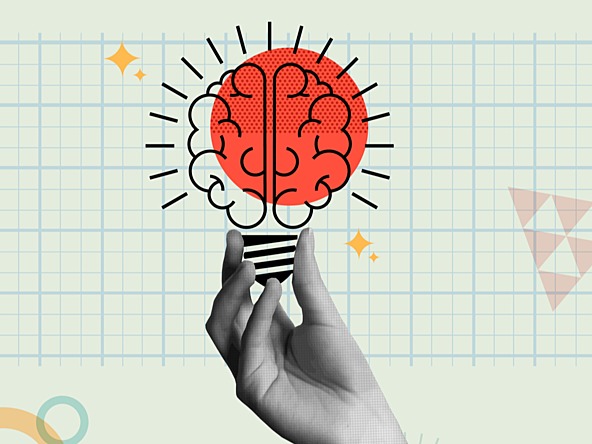Why research needs anthropologists (more than ever)

“In the moments where you’re deciding to become an agent, you’re having to make thousands of risk-based calculations, but you’re not quite sure how to respond emotionally. There’s no etiquette. Ironically, it becomes a bit of a no man’s land. We [women] are the liminal ones.”
These are the words of Blaise Metreweli, the new chief of the Secret Intelligence Service (MI6 ), in an interview for the Financial Times, sharing some insight into the reasons why she has become the first female chief of MI6. One thing to keep in mind is that Blaise Metreweli is an anthropologist, and language such as ‘no man’s land’, ‘liminal’, or ‘common ground’ is far from random or stylistic choice; in fact, it is pretty revealing.
Being an anthropologist myself, it does not sound surprising to me that someone like Blaise has risen to the ranks of a critical intelligence organisation, but I am self-aware enough to realise that this can sound intriguing to many people.
Anthropology generally comes across as an interesting and fascinating discipline (or at least I hope), but somehow abstract. A lot of people don’t really know what we do in the real world. Perhaps one reason is that our training often involves naturalising and embodying other people’s perspectives, so we don't get to practise selling our USP or even the value of anthropology as a foundation for different careers.
So, this time, I’m taking this opportunity to articulate some of the reasons why anthropologists make for unique professionals for reasons beyond expertise.
Should I dare to say, the types of soft skills we develop during training can’t even be called ‘soft’ in this day and age of acceleration, automation, and synthetic everything. They are survival skills in this weird world that is taking shape with AI.
Before I dive in, a bit of context (yes, anthropologists are all about context). The type of method we are trained in aims to make sense of lived experience as occurring within an intricate and interdependent network of cultural factors, understanding that people embody ever-evolving cultural, political, economic and environmental landscapes in the ways they act, think, and feel.
We assume the best way to understand those internal logics and invisible mental architectures is by engaging with people and immersing ourselves in their world, trying to live just like them. As you can imagine, that can be challenging at times. We are back at square one, learning the basics of human interaction all over again.
The result is a great deal of cognitive and emotional muscle, and here’s a non-exhaustive list of things we learn in this real-life boot-camp that is anthropology:
- We learn to build resilience to uncertainty and complexity. We are trained to sustain interaction and curiosity even in situations where things don’t make complete sense, or when something makes us feel out of place or even a bit silly . With time, we come to realise that those same shortcomings offer the most profound human insights.
- We can hold two opposing perspectives in our minds without seeing one as more important or usual than the other. We embrace complexity; we don’t fight it (and that’s something AI won’t be doing anytime soon).
- We avoid panicking when things don’t go our way. We are trained to work through uneasiness and build trust in our emotions and gut feelings. The best decisions are the ones that feel right in the body – that’s embodied knowledge.
- We pay attention to what people do in context, how they behave and not just what they say. Human environments are saturated with meaning. Every element that composes our world has a reason to exist and establishes a frame that organises experience and behaviour without us being aware of it.
- This awareness sharpens our sensitivity to the meaningful differences in how people respond to various situations and to one another.
- We learn to function under pressure and use stress as a catalyst for insight, as a means to make sense of things. We will often feel lost and disoriented when trying to navigate a world that is not our own. It is all part of the process, and we learn to trust the journey.
- We don’t get caught up in the hype. We listen. We observe. We wait until the chips fall into place, and then we act.
- We’re not afraid of getting closer to people – and that is an especially important one in the age of AI. We learn to build trust, confidence, reciprocity and how to avoid breakdowns in communication.
- And finally, we learn how to learn. We internalise a vision of reality that is always in the making, unpredictable, open-ended and multi-layered. To nurture the illusion that we know everything is futile. The point is not having all the answers but knowing the right questions to ask.
Borrowing from Rainer Maria Rilke, we learn to live the question by keeping an open mind, a sense of curiosity and a passion for the weird. Absolute human attributes that we need to continue to cultivate if we are to retain some of the elements that make research truly valuable for businesses and for people.
Louise Pasteur de Faria is senior cultural strategist at Lovebrands

We hope you enjoyed this article.
Research Live is published by MRS.
The Market Research Society (MRS) exists to promote and protect the research sector, showcasing how research delivers impact for businesses and government.
Members of MRS enjoy many benefits including tailoured policy guidance, discounts on training and conferences, and access to member-only content.
For example, there's an archive of winning case studies from over a decade of MRS Awards.
Find out more about the benefits of joining MRS here.














1 Comment
Vitelli Publisher
7 months ago | 1 like
Very interesting. I feel sometimes an entrepreneur is almost an anthropologist!
Like Reply Report